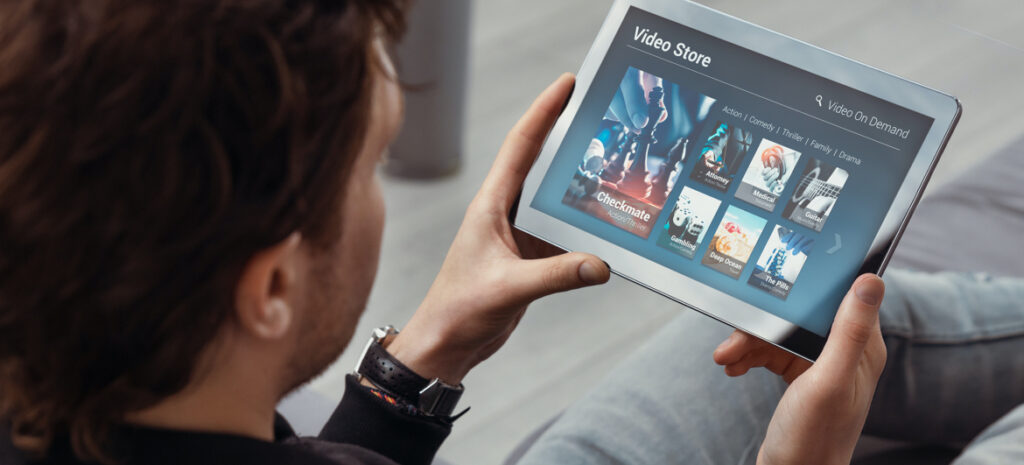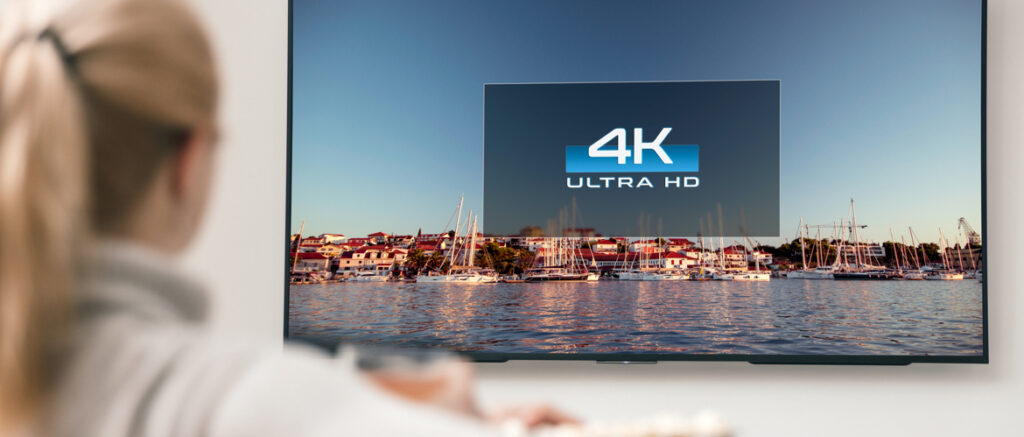
Let’s talk about streaming, shall we? Because as we all know, not all internet speeds are created equal—especially when you’re watching your favorite show and it’s glitchy or slow. Read on to dive into the world of internet speed for streaming and banish slow speeds for good.
What Internet Speed Do I Need to Stream?
A good internet speed for streaming depends largely on how many people and devices are connected to your Wi-Fi at once. You’ll know if too many people are using up your internet bandwidth when your show starts to slow down, glitch, or stop altogether—a common occurrence known as buffering.
Buffering occurs when you overload your system with too much data. If your internet isn’t fast enough to handle all the data and devices connected to your home network, it will start to slow down and the quality will decrease.
As a general rule, the recommended internet speed for streaming in standard definition videos is 3–10 Mbps (Megabits per second). To stream Hulu, Netflix, and Sling TV, you’ll want a minimum download speed of 25 Mbps. For more devices and users, you’ll want a speed closer to 50 Mbps.
Minimum Download Speed Requirements:
- Standard video streaming: 3–10 Mbps
- Video streaming services: 25 Mbps
- Multiple devices and users: 50 Mbps
If you’re streaming in higher-quality HD (High Definition), HDR (High Dynamic Range), or 4K, you’ll need even faster speeds. We break down which speeds are best for HDR and 4K below.

What is the Minimum Internet Speed for Streaming?
For just one person on one device streaming a standard-definition (SD) show, you need a minimum of 3–10 Mbps. For HD videos in general, 10–18 Mbps is adequate for most streaming purposes. To stream in Ultra HD Video, you’ll need 18–25 Mbps.

What Internet Speed Do I Need to Stream 4K?
The higher the resolution, the more data you need to download it. 4K is higher-quality (4,096 pixels opposed to 720 pixels in a normal HD show), and uses more bandwidth to process. You’ll need a minimum of 25 Mbps to stream movies and shows in HDR and 4K.
4K refers to the resolution, whereas HDR expands the range of colors and tones in a video. To watch movies and shows in the best possible quality, you’ll need an HDR-compatible screen in addition to fast enough speeds.
For the ultra-connected home, consider AT&T Fiber, especially if you want to stream multiple 4K and HDR shows at once. Fiber speeds go up to 1 GIG (or 1,000 Mbps), so you’ll be set for your next house party or hangout.

How Can I Improve my Internet Speed for Better Streaming?
The first step to improving your internet speed for streaming is to run an internet speed test and check that your current speed is up to par with the number of devices and household members who use it.
If your speed is too slow, you’ll want to upgrade your internet plan to accommodate. Keep in mind that you may want more than you think—just in case you have more guests or want to use your phone while watching TV.
Once you upgrade your plan, you should also upgrade your equipment to make sure it can handle all the data you throw at it. Other factors like router placement and malware can also play a part in slow internet—be sure to check out this article for a few tips to optimize your internet speed.
Want to learn more about internet speed and how it works? Read this article and you’ll be an internet expert in no time.

